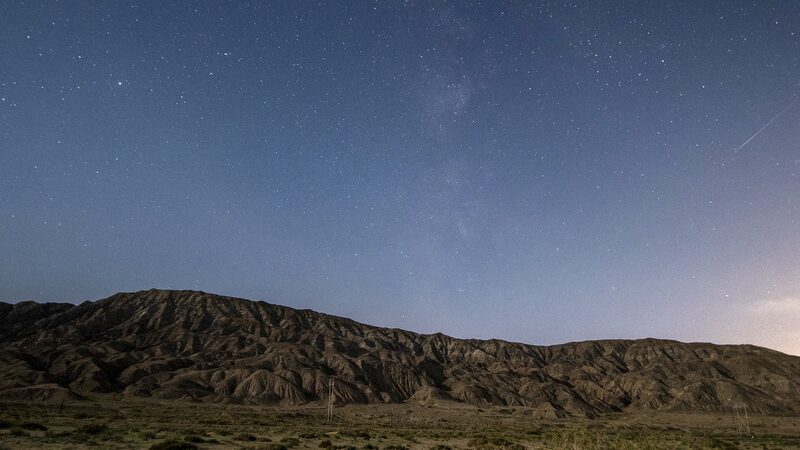Look Up: The Eta Aquarid Meteor Shower Is Lighting Up the Sky This Weekend! 🌠
Hey stargazers and night owls! If you've been itching for a cosmic show, this is your weekend. The Eta Aquarid meteor shower, a dazzling display of shooting stars left behind by the legendary Halley's comet, is set to peak on Sunday morning. Get ready to make some wishes! ⭐
What's the Buzz About? 🧐
Every year, Earth cruises through the dusty trail of Halley's comet not once, but twice—giving us the Eta Aquarid meteor shower in May and the Orionid meteor shower in October. From April 19 to May 28, the Eta Aquarids are active, and this weekend is when they'll shine brightest.
According to Xiu Lipeng, a member of the Chinese Astronomical Society, this year's peak is extra special. \"The best way to observe meteor showers is to avoid the influence of moonlight,\" Xiu says. \"Fortunately, during the peak of this year's Eta Aquarid meteor shower, the moon phase is waning, which has little effect on observations.\"
When and Where to Watch ⏰🌍
For those of us in the Northern Hemisphere, expect to see between 10 to 30 meteors per hour in the pre-dawn hours of Sunday. If you're south of the equator, you're in luck—the show is even better down there! In the Southern Hemisphere, you can start watching about four hours before dawn.
No Telescope? No Problem! 🔭❌
You don't need any fancy gear to enjoy the meteor shower. Just find a comfy spot away from city lights, give your eyes some time to adjust to the darkness, and look up! Remember, patience is key. Maybe bring a friend or two and make a night out of it. Don't forget the snacks! 🍿
Why Meteors, Anyway? 🌌
Meteor showers happen when tiny space rocks enter Earth's atmosphere at high speeds. The friction with the air heats them up, making them glow and leaving bright trails behind—what we call shooting stars. Most of these rocks are no bigger than a grain of sand, but they sure know how to put on a show.
Quick Tips for the Best Experience ✨
- Check the weather forecast to make sure it's a clear night.
- Avoid areas with lots of light pollution—head to the outskirts if you can.
- Bring something to lie on for comfort—a blanket or a reclining chair works great.
- Give your eyes about 20 minutes to adjust to the darkness.
So set your alarms and get ready to be wowed by the universe. After all, it's not every night that pieces of a famous comet light up our skies! 🌠🌙
Happy stargazing! 🚀
Reference(s):
cgtn.com




